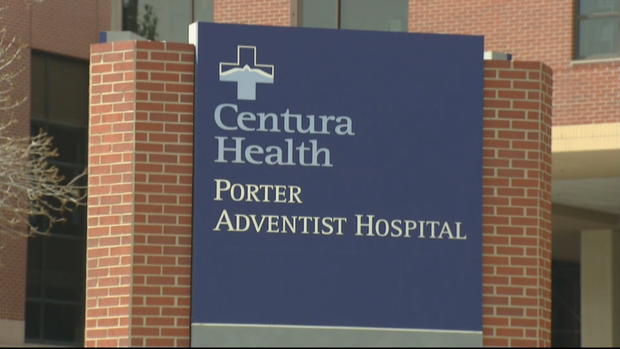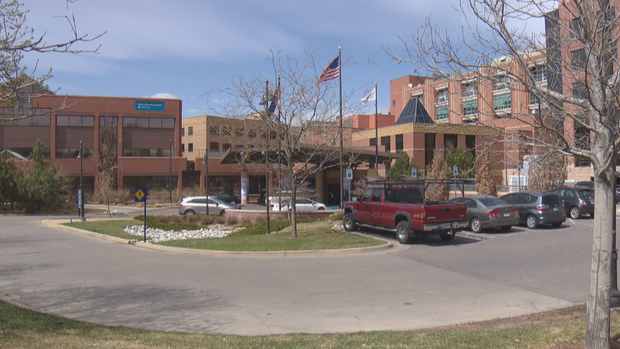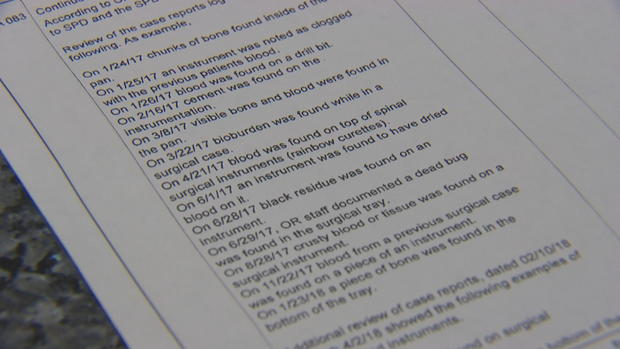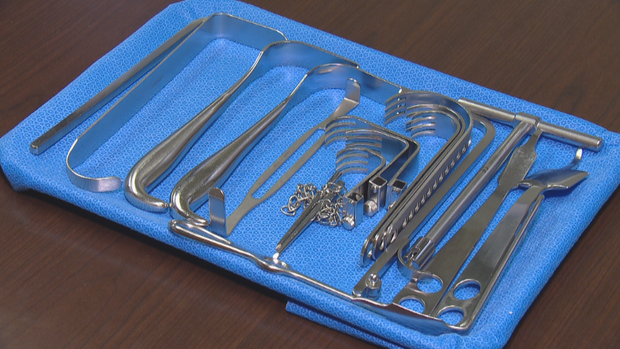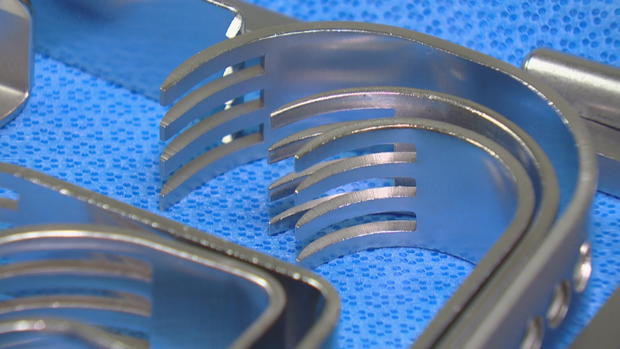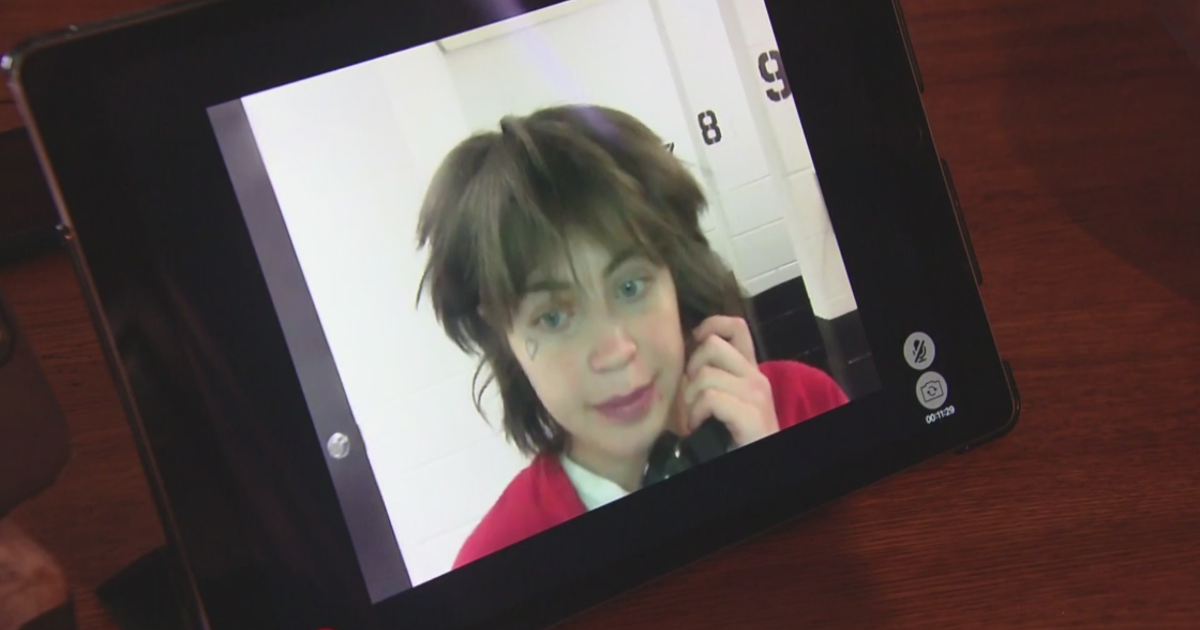Doctor Plans To Sue Porter Adventist Hospital Over Infection
DENVER (CBS4)- A doctor is planning to sue Porter Adventist Hospital over an infection after undergoing hip surgery during the sterilization breach period.
Dr. Melanie Green is a physician, but on July 25, 2016, she was a patient at Porter Adventist Hospital undergoing hip surgery. Soon after, she says she developed a serious infection.
"I almost died from the infection. I have two small children. It was a horrific experience for my family to go through," she told CBS4 Investigator Rick Sallinger.
Porter Adventist Hospital confirms that Green had contacted them about her infection.
Fast forward to earlier this year when CBS4 reported that the hospital was halting surgeries after reports of sterilization problems in orthopedic surgical instruments.
"I couldn't believe this, I was absolutely blown away," Green said.
She called the hospital again, confirming she was in the group considered at risk from sterilization concerns.
"I spoke to a supervisor who told me there was no increase in surgical site infections," she said.
The Colorado Department of Health and Environment conducted an investigation and did find there had been an increase in infections. It was a detailed and critical report obtained by CBS4 last week.
"I have read entire report and I am absolutely appalled," Green said.
The reported detailed instances of bugs, bones, rust, cement and hair being found on or with the surgical instruments.
Porter has stated its process decisions for cleaning instruments are based on quality and patient safety.
Green feels the hospital was responsible for her condition adding, "This isn't bad luck this is gross negligence and I almost died."
The state health department pointed out that "although surgical site infections occurred during this time, the department's investigation does not prove a cause and effect between the sterilization breaches and the infections."
RELEASE FROM COLORADO DEPARTMENT PUBLIC HEALTH AND ENVIRONMENT
June 12, 2018
CDPHE completes Porter Adventist Hospital report
The Colorado Department of Public Health and Environment has completed its investigation of contaminated surgical instruments and trays at Porter Adventist Hospital. The investigation was prompted by several complaints.
During the course of the investigation, the facility temporarily closed its operating rooms.
Although several surgical site infections occurred during this time, the department's investigation does not prove a cause and effect between the sterilization breaches and the infections.
CDPHE found:
• The facility experienced system failures that led to inadequate sterilization of surgical equipment.
• Seventy-six instances of contaminated surgical instruments and trays were found from Jan. 1, 2017, to April 2, 2018. The contaminants included chunks of bone, blood, cement, black residue, dead bug and hair.
• Delays occurred in scheduled surgeries because clean instruments were not available in a timely manner.
• Surgeries were interrupted because clean instruments were not available.
• The facility did not report some surgical site infections to the national data bank, the National Healthcare Safety Network operated by the CDC, because of the inadequacy of the surgical site infections tracking system.
The department is in the process of determining whether to impose any licensure sanctions. In addition, since the facility is certified by the Centers for Medicare and Medicaid Services, CMS may, at its discretion, impose sanctions.
The department received an acceptable plan of correction (approved June 6) and will be conducting an unannounced revisit to ensure the corrections are implemented.
The plan of correction requires the hospital to:
• Establish a staffing plan to ensure adequate staffing and oversight of the sterile processing department
• Provide training and competency-testing of staff regarding appropriate sterilization techniques
• Conduct tracking and trending of data regarding surgical equipment sterilization and surgical site infections for correction of processes when indicated
• Establish workflow patterns for the sterile processing department to prevent delays and interruptions of surgeries
---------------
Additional information/nature of system failures
• Inadequate staffing and oversight in the sterile processing department.
• Inconsistent competency testing of sterile processing staff.
• Use of inappropriate sterilization techniques:
• Not following manufacturers' instructions for cleaning.
• Routine use of immediate use steam sterilization or IUSS (flash sterilization), which should be used only in emergencies such as dropping an instrument during surgery. IUSS was routinely used because of insufficient staffing in the sterile processing department and because of the incidence of bioburden on trays and equipment in the operating rooms.
• Not having a system to promptly identify sterilization breaches and the root causes of the breaches. (The hospital indicated there was a gap in the pre-cleaning process (i.e., cleaning instruments after surgery), but there is no documentation that the facility identified problems with the sterilization process itself.)
• After identifying sterilization breaches, the problems were not addressed through staff training or other process improvements.
The complaint investigation began Feb. 22, 2018 and ended April 17, 2018.

